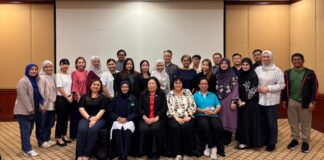By TAN SRI LEE LAM THYE, MEMBER OF MENTAL HEALTH ADVISORY COUNCIL
KOTA KINABALU: World Mental Health Day, observed globally on 10 October, is a reminder that mental health is an essential part of overall well-being and human dignity.
This year’s theme, “Mental Health in Humanitarian Emergencies,” highlights the urgent need to recognise how crises, whether natural disasters, economic uncertainties, or accidents, intensify psychological distress and place immense strain on individuals, communities, and the nation.
In Malaysia, mental health remains a pressing concern. The COVID-19 pandemic left lasting impacts, from isolation and grief to heightened anxiety and financial hardship.
More recently, the gas explosion tragedy in Putra Heights reminded us that emergencies are not only physical disasters. Survivors, families, and even first responders often carry invisible scars of trauma and grief long after such incidents.
Similarly, seasonal floods and other tragedies have displaced families, disrupted livelihoods, and tested the resilience of communities across the nation. These events are powerful reminders that humanitarian emergencies are not distant realities but challenges we face here at home.
Unfortunately, stigma around mental health continues to silence many from reaching out for the help they need. Fear of being judged, misunderstood, or discriminated against leaves too many Malaysians suffering in silence.
Reducing stigma must therefore be a national priority. A society that normalises open conversations about mental health empowers individuals to seek support early, preventing further suffering and even saving lives. We must move towards a culture of empathy, where asking for help is seen as a strength, not a weakness.
The government plays a pivotal role in shaping this environment. We call for greater investment in mental health resources across the healthcare system, with special attention to underserved and rural communities where support is limited.
Adequate funding, training of mental health professionals, and integration of mental health services into primary healthcare are crucial. Equally important is meaningful collaboration with non-governmental organisations (NGOs) such as Befrienders KL, which has been serving the community for over 50 years by providing free and confidential emotional support to those in distress or suicidal.
Recognising and supporting NGOs strengthens Malaysia’s safety net and ensures that help is always within reach.
Beyond government and NGOs, individuals and communities also have a role to play. Every Malaysian can help reduce stigma, offer compassion, and look out for one another.
Simple acts such as listening without judgment, encouraging help-seeking behaviour, or checking in on a friend, can make a profound difference. In times of humanitarian emergencies, these gestures of solidarity can restore hope and resilience.
On this World Mental Health Day, let us reaffirm our commitment to building a Malaysia where mental health is protected, stigma is dismantled, and no one is left to struggle alone.
Emergencies may test our resilience, but together, through awareness, compassion, and collective action, we can ensure that mental health remains at the heart of our response to any crisis.


